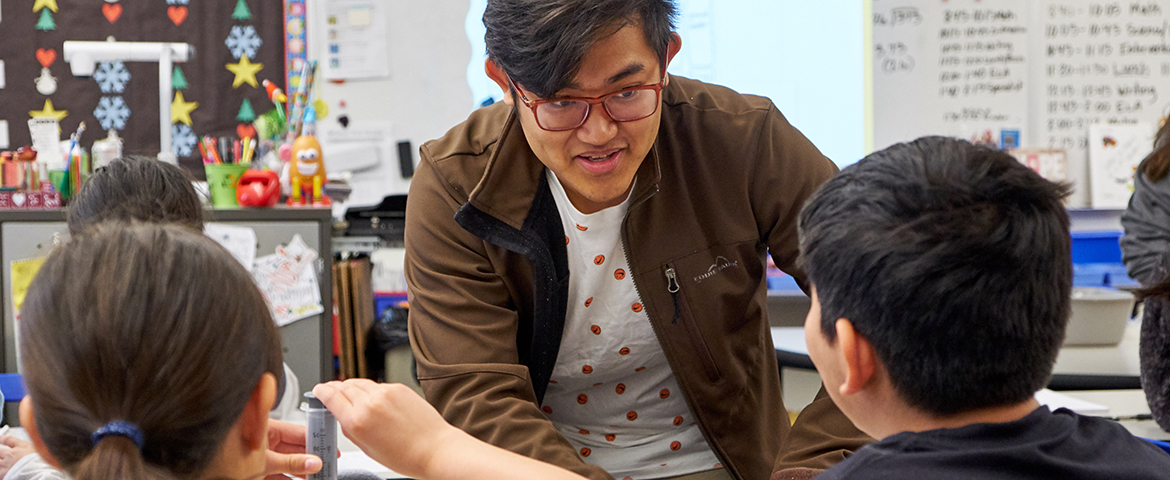PLU students take STEM into local elementary classrooms

Image: PLU students Jimmy Aung and Jamie Escobar (not pictured) led a science class at Four Heroes Elementary as they explore the education through a grant funded program.
By Debbie Cafazzo
Marketing & Communication
TACOMA, WASH. (Oct. 28, 2019) — Drop by drop, the lesson comes into focus for this classroom full of fifth-graders.
Jimmy Aung ’19, a PLU biology major, and his teaching partner, Jamie Escobar ’19, also a biology major, lead the students at Four Heroes Elementary in Lakewood, WA through a science lab experiment.
Grasping pipettes and syringes, students measure out precise amounts of water in proportions that represent Earth’s water resources. A small plastic bottle with 100 milliliters of water represents all the water on the planet, while increasingly smaller amounts measured into other bottles stand for salt water, fresh water and other categories. By the time students measure the proportion of Earth’s water found in the air and soil, their bottles contains only a tiny, nearly undetectable drop.
“It’s so little, right?” Aung says to a puzzled girl.
The lesson Aung and Escobar are teaching is part of a pilot project launched this year by PLU’s Division of Natural Sciences and the School of Education and Kinesiology.
Funded by a $71,000 Robert Noyce Teacher Scholarship grant from the National Science Foundation, the project seeks to encourage talented STEM (Science, Technology, Engineering and Math) majors to become K-12 math and science teachers. There’s a national shortage of these educators, especially in schools with high-needs student populations.
“I like biology, and I also like being with children,” Aung said. “This is a great way to get teaching experience – something I might like to explore after graduation.”
“I’m still exploring different careers and I also enjoy working with children,” added Escobar. She mentioned her interests to her faculty adviser, Shannon Seidel, assistant professor of biology. Seidel introduced Escobar to the Noyce program.
This year’s program dispatched PLU students to five area elementary and middle schools. The cross-disciplinary faculty group plans to apply for a second, larger grant to support the next phase of the project, which could include student scholarships or stipends.
“This would strengthen our collaboration and would provide more opportunities for our students to do the exciting work they started this year, in collaboration with our school district partners,” Seidel said.



Social Media